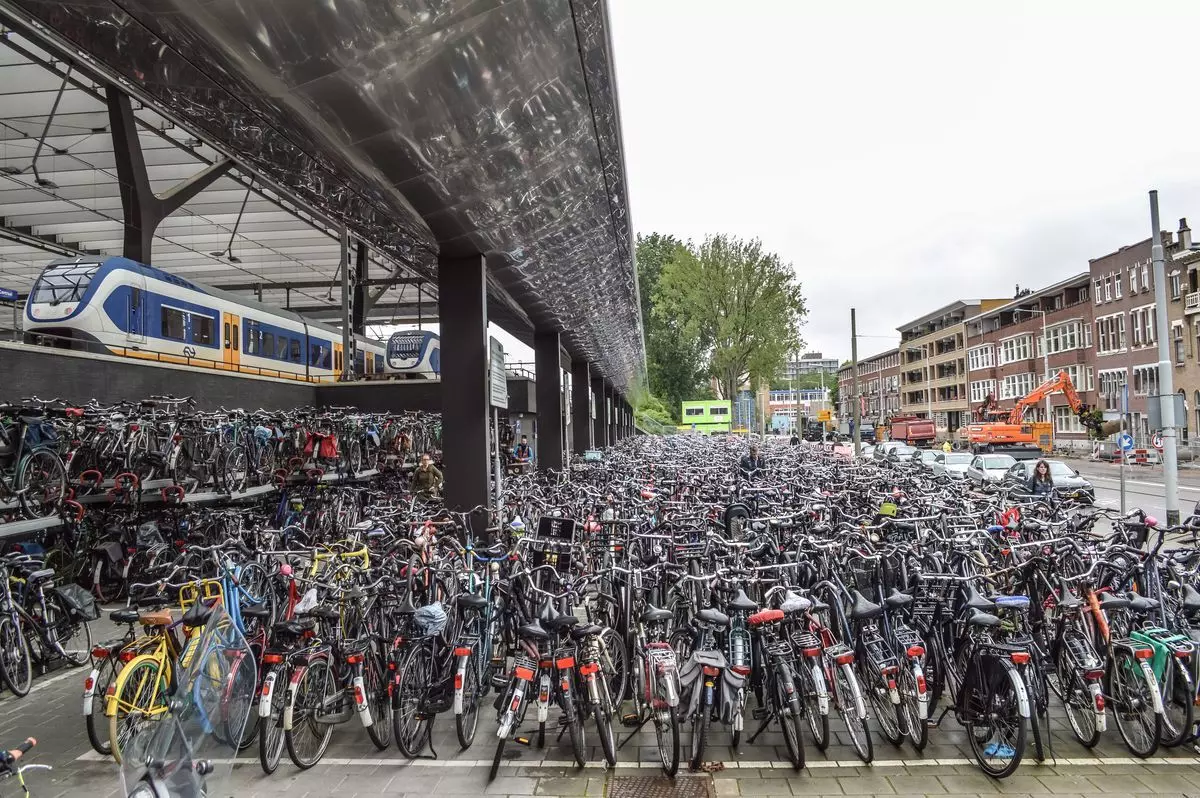- Home
- /
- Trending-News
- /
- From Copenhagen to...

On a hot Wednesday morning, July 21, 2001, an accident had just occurred in the upscale Mabushi District of Abuja.
Accidents occur everywhere in the world, but there is something unique about this one. It sent a top-ranking minister and his beloved bicycle crashing into a ditch.
"I thank God I'm alive," Chief Ojo Maduekwe, then Minister of Transportation, told reporters as he marveled at escaping without injuries after he was knocked down from his bicycle by a reckless bus driver.
"Accidents can happen anywhere, on land, sea, and air," Maduekwe said, stressing that the problem was not riding his bicycle but too many cars and a lack of lanes for bicycles.
"Ojo oni Keke," as he was called in some quarters, went to the weekly Federal Executive Council (FEC) meeting at Aso Villa, Abuja, as part of his campaign to promote bike riding in Nigeria.
The former minister, who also served as minister of foreign affairs, died on June 29, 2016, but his bold but controversial initiative remains relevant.
Twenty one years after the famous accident, the biking culture still remains precarious in all major cities of Nigeria, and with the growing need to cut down on emissions, experts have advocated bicycles as alternative to the emission polluting vehicles.
The contrast is however the case in Copenhagen, Denmark where the city has earned the reputation as being ranked the most bicycle friendly city in the world.
Copenhagen boasts more bicycles than residents, with over 672,000 bikes on its 384 kilometers of cycle lanes.
Cycling is regarded as healthier, more environmentally friendly, cheaper, and often quicker with well-marked out lanes for bicycles to get around the city.
Henrik Pedersen, a Danish environmental expert, said that Nigerians could embrace the bicycle culture as part of efforts to cut down on emissions from automobiles.
He said the use of bicycles is a cheaper, faster, and more eco-friendly way of commuting in African cities like Abuja, as long as the necessary infrastructure is put in place.
"If you move on a bicycle rather than a car you have no emissions, even if it is electric bicycle, the emission would be very low at least.
"Also, producing bicycles does not take a lot of resources or emit a lot of CO2 compared to cars."
"So this measure can go a long way in addressing some of the climate issues, apart from the fact that riding a bicycle keeps you healthy," he said.
Lise Walbom, CEO of Food Nation, a leading food and agriculture company in Denmark, said that the bicycle culture in Denmark is encouraged right from a very young age.
"My husband and I pedaled behind our 11-year-old twins as they cycled to school, and we go to work with our bicycles."
"It is easy and effective to use our bikes in our everyday lives, and it is good for my health!" she said.
Andreas Tomasson, a salesman in Copenhagen, said he had no reason to buy a car because he owns a bicycle and there is an efficient transport system that includes intra- and intercity train services.
In September 2017, the then Minister of Transportation, Rotimi Amaechi, after the 15th meeting of the National Council on Transportation (NCT) in Sokoto, said the Council had approved a pilot `bicycle riding" project as a means of transportation in Abuja (FCT).
"The National Council on Transportation is a policy-making body." We approved that we should do a pilot project on bicycle riding in the FCT.
This is because Abuja is the only city that has facilities for bicycle riding.
"For other states that want to do it, we must provide facilities before they can proceed with it; we want to separate them from the roads because some motorists are impatient," Amaechi said.
Mr. Bisi Kazeem, the Federal Road Safety Corps (FRSC) Public Education Officer, said infrastructure adjustments must be made to support bicycle transport culture in Abuja.
He said the national road safety regulations will also have to be amended to include provisions for the safety of cyclists.
"As a pilot scheme, if Abuja is taken, there is a need for reorganizing some intersections before we can start it successfully."
"FRSC studied all the road networks in Abuja, and we have identified the gaps and recommended measures to address them
"During the study, which we carried out with Federal Capital Territory Administration officials, we found out that all roads and streets have provisions for bicycle lanes in the design,
"But at the point of construction, the lanes were either ignored or merged with pedestrian walkways, thereby making the walkways too wide. In some cases, they were turned into green areas.
"I think it is only on Yakubu Gowon Way in Asokoro that the lane is being implemented." "So, a key concern is the need for re-engineering of intersections and traffic lights to provide for cyclists," he said.
Experts say that to maximize the health, safety, and environmental advantages of cycling, relevant authorities should put in place the necessary infrastructure and take actions to promote cycling in the nation.
By Muhyideen Jimoh



